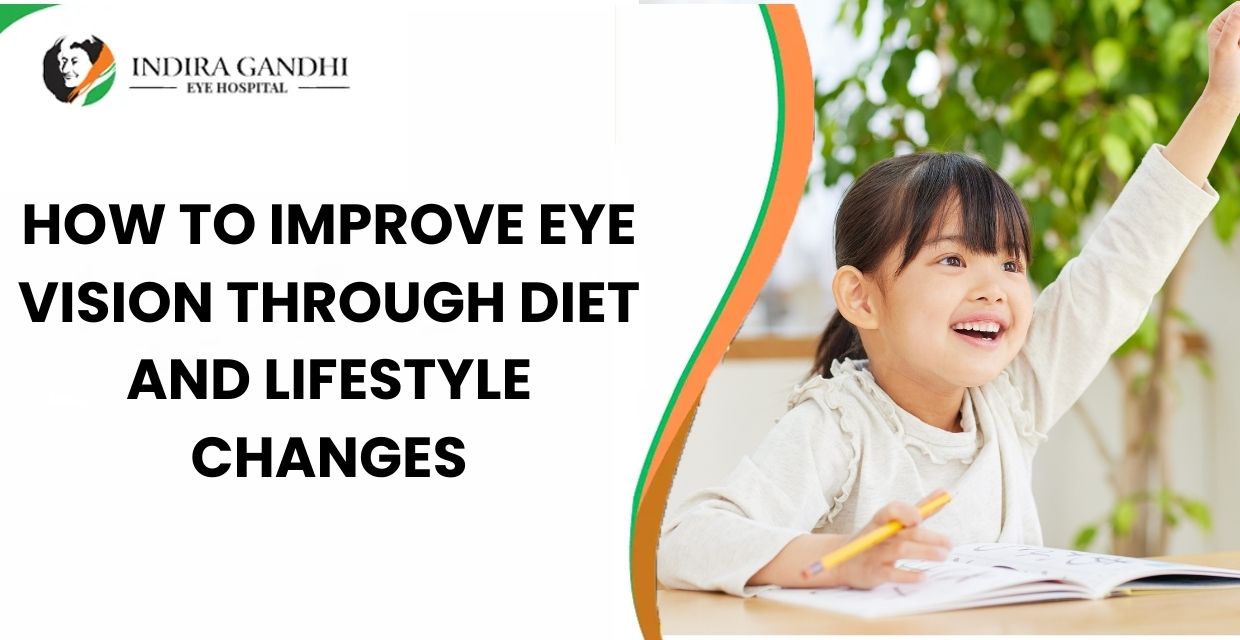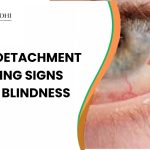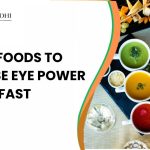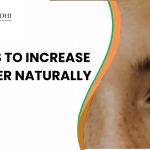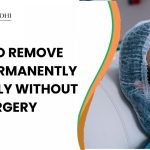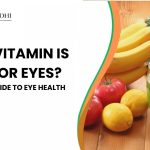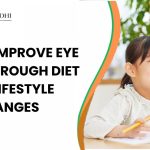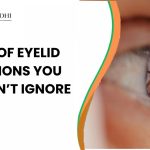|
Getting your Trinity Audio player ready...
|
We’ve all grown up with the idea that our eyes are precious and that certain foods, like carrots, hold the key to perfect vision. As we get older and perhaps notice our vision changing, the idea of naturally reversing or improving our sight becomes incredibly appealing. You’ve likely asked yourself if there are simple changes you can make to your daily life to restore the clarity you once had. The question of How to Improve Eye Vision Through Diet and Lifestyle Changes is a powerful one, full of hope and the promise of a natural solution.
While it’s important to clarify that diet and lifestyle changes cannot alter the fundamental physical structure of your eye—and therefore cannot reverse common refractive errors like nearsightedness, farsightedness, or astigmatism—they are absolutely crucial for maintaining and preserving your eye health. Think of it this way: a healthy diet and lifestyle are not a cure for your prescription, but they are the foundational pillars for ensuring your eyes remain healthy, protected from age-related decline, and resilient against the daily stressors of our modern world. Today, we’re going to provide you with a complete guide to harnessing the power of nutrition and healthy habits to support your vision for a lifetime.
The Science of Vision and Its Limitations
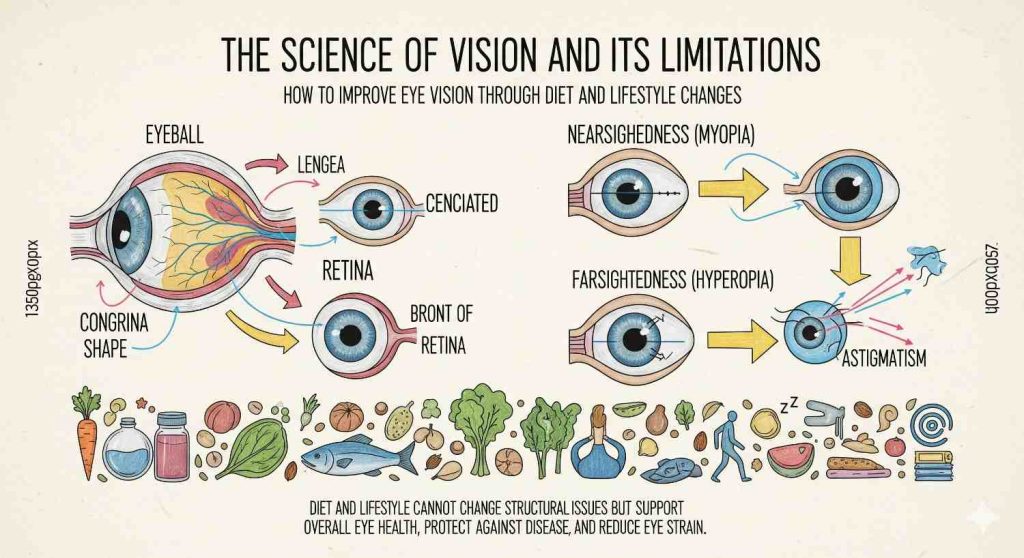
To truly understand what diet and lifestyle can and cannot do, we must first understand the basics of vision. The shape of your eyeball and the curvature of your cornea are the primary factors that determine whether you have a refractive error.
- Nearsightedness (Myopia): Occurs when your eyeball is too long or your cornea is too steeply curved, causing light to focus in front of the retina.
- Farsightedness (Hyperopia): Happens when your eyeball is too short or your cornea is too flat, causing light to focus behind the retina.
- Astigmatism: Caused by an irregularly shaped cornea, preventing light from focusing on a single point on the retina.
These are all structural issues that cannot be changed by diet or exercise. However, a healthy diet and lifestyle provide the vital nutrients and support systems that your eyes need to function at their best, protect them from disease, and manage everyday stressors like eye strain and fatigue. This is the true meaning of How to Improve Eye Vision Through Diet and Lifestyle Changes.
Need an Eye Test or Treatment?
Get your vision checked by trusted specialists. From routine eye tests to advanced treatments, our experts ensure the best care for your eyes. Book your appointment today for healthy and clear vision!
Book Appointment with Eye ExpertThe True Power of Diet: Nutrients for Optimal Eye Health
Your eyes are incredibly active organs with a high metabolic rate, making them susceptible to oxidative stress. A nutrient-rich diet provides the antioxidants and other essential building blocks they need to stay healthy and fight off damage.
Vitamin A: The Visionary Antioxidant
This is the vitamin most famously associated with eye health. It is a key component of a protein called rhodopsin, which is essential for low-light and night vision. A severe deficiency can lead to night blindness and other serious conditions.
- Sources: Vitamin A is found in both animal-based retinoids (liver, eggs, dairy) and plant-based carotenoids, like beta-carotene, that your body converts into Vitamin A. Excellent sources include carrots, sweet potatoes, pumpkin, and spinach.
Vitamin C: The Collagen Builder
This powerful antioxidant is crucial for eye health. It is found in high concentrations in the lens of the eye, where it helps prevent oxidative stress and may lower the risk of developing cataracts, which is a clouding of the lens. It also helps in the production of collagen, a protein that provides structure to your cornea and the blood vessels in your eyes.
- Sources: You can find Vitamin C in citrus fruits (oranges, lemons), bell peppers, strawberries, broccoli, and kale.
Vitamin E: The Cell Protector
Vitamin E is another potent antioxidant that works in synergy with Vitamin C. It helps to protect the cells in your eyes from damage caused by free radicals, which are unstable molecules that can harm cells and contribute to age-related vision problems like cataracts and macular degeneration.
- Sources: Excellent sources of Vitamin E include almonds, sunflower seeds, peanuts, avocado, and vegetable oils.
Lutein and Zeaxanthin: The Eye’s Natural Sunglasses
These two carotenoids are arguably the most important nutrients for long-term eye health. They accumulate in the macula, the central part of your retina responsible for sharp, detailed vision.
- Function: They act as a powerful filter, protecting your macula from high-energy blue light from the sun and digital screens. By absorbing this harmful light, they help prevent oxidative damage and may lower the risk of developing age-related macular degeneration (AMD) and cataracts.
- Sources: The best sources are dark, leafy greens like spinach, kale, and collard greens. They are also found in corn, broccoli, and egg yolks.
Omega-3 Fatty Acids: The Lubricant and Structural Key
These healthy fats, particularly DHA (docosahexaenoic acid), are crucial for the structural integrity of your retina. They also play a vital role in preventing dry eye syndrome by supporting the oily layer of your tear film, which keeps your eyes well-lubricated and comfortable.
- Sources: The richest sources are fatty fish like salmon, mackerel, and tuna. For those who don’t eat fish, flaxseeds, chia seeds, and walnuts are good plant-based alternatives.
Zinc: The Vision Transporter
Zinc is a key mineral that helps your body transport Vitamin A from your liver to your retina. It is also an essential component of the enzyme that produces melanin, a protective pigment in your eyes. A zinc deficiency can lead to impaired vision.
- Sources: Zinc is found in red meat, shellfish, beans, nuts, and whole grains.
Need an Eye Test or Treatment?
Get your vision checked by trusted specialists. From routine eye tests to advanced treatments, our experts ensure the best care for your eyes. Book your appointment today for healthy and clear vision!
Book Appointment with Eye ExpertThe True Power of Lifestyle: Habits for Lasting Vision Health
While a healthy diet is foundational, a holistic approach to How to Improve Eye Vision Through Diet and Lifestyle Changes requires incorporating key habits into your daily routine.
Regular Exercise
Regular physical activity improves blood circulation, which ensures that your optic nerve and other eye structures receive a steady supply of oxygen and nutrients. Exercise also helps manage systemic diseases like diabetes and high blood pressure, both of which can have a detrimental effect on eye health.
Stay Hydrated
This simple habit has a direct impact on your eyes. Proper hydration is essential for maintaining a healthy tear film, which lubricates your eyes and keeps them comfortable. When you’re dehydrated, your tear production can decrease, leading to a gritty, dry, and irritated feeling in your eyes.
Protect Your Eyes from UV Light
UV radiation from the sun is a major risk factor for several serious eye conditions. Constant exposure can contribute to the development of cataracts and macular degeneration. Make it a habit to wear sunglasses that block 99% or 100% of both UVA and UVB rays whenever you are outdoors, even on cloudy days.
The Digital Detox: Manage Screen Time
In our digital world, the constant near-focus demands of screens put immense stress on our eyes. This can lead to digital eye strain, characterized by headaches, fatigue, and blurry vision. A simple but effective habit is the 20-20-20 rule: every 20 minutes, look at something 20 feet away for 20 seconds. This allows your eye muscles to relax and reset.
Get Quality Sleep
Your eyes need to rest and repair. During sleep, your eyes replenish their natural lubricants and flush out irritants. Chronic sleep deprivation can lead to eye strain, muscle spasms, and dryness. Aim for 7 to 9 hours of quality sleep each night to give your eyes the recovery time they need.
Quit Smoking
Smoking is one of the most harmful things you can do for your eyes. It significantly increases your risk of developing cataracts, AMD, and optic nerve damage. Quitting smoking is one of the most impactful lifestyle changes you can make for your long-term eye health.
When Diet and Lifestyle Are Not Enough
While a healthy diet and lifestyle are powerful tools for preserving vision, they are not a substitute for professional eye care. The only way to truly understand your vision health is through regular, comprehensive eye exams.
- The Importance of an Eye Exam: Many serious eye diseases, like glaucoma, have no early symptoms and can only be detected by a professional. An ophthalmologist can not only measure your prescription but also check for signs of disease, assess the health of your retina, and provide personalized advice. How to Improve Eye Vision Through Diet and Lifestyle Changes is a great question to start with, but a professional eye exam is the definitive answer to how you are truly doing.
Need an Eye Test or Treatment?
Get your vision checked by trusted specialists. From routine eye tests to advanced treatments, our experts ensure the best care for your eyes. Book your appointment today for healthy and clear vision!
Book Appointment with Eye ExpertFrequently Asked Questions (FAQs) About Eye Nutrition and Health
Can eating carrots and other healthy foods reverse my nearsightedness?
No, a healthy diet cannot reverse nearsightedness or other refractive errors. While these foods provide vital nutrients for overall eye health, they cannot change the physical shape of your eye or cornea, which are the causes of these conditions.
Are eye health supplements necessary for good vision?
For most people with a healthy, balanced diet, supplements are not necessary. However, for individuals with dietary restrictions or diagnosed with a specific eye condition like AMD, a doctor may recommend supplements. Always consult a professional before starting any regimen.
Can these tips help me reduce my dependence on glasses or contacts?
These tips won’t change your prescription, but they can help alleviate symptoms of eye strain and fatigue, which may make your eyes feel more comfortable and less tired. They are about long-term preservation and comfort, not a cure for your prescription.
Will I still need a comprehensive eye exam if I follow all these tips?
Yes, absolutely. An eye exam is crucial. Many eye diseases have no early symptoms, and only a professional can detect them. These lifestyle tips are preventative measures, but they are not a substitute for a medical diagnosis or treatment.
How quickly can I expect to see results after making these changes?
The benefits of a healthy diet and lifestyle are cumulative and long-term. You may notice improvements in comfort and a reduction in eye strain fairly quickly, but the primary benefits are in the long-term preservation of your eye health and the prevention of future problems.
Is it possible to get all the necessary nutrients just from my diet?
Yes, a varied and balanced diet rich in fruits, vegetables, leafy greens, fatty fish, nuts, and seeds can provide all the vitamins and nutrients your eyes need. A supplement may be a convenient option for some, but a whole-foods diet is the gold standard.
Your Vision, Our Priority: Expert Care at Indira Gandhi Eye Hospitals
The question of How to Improve Eye Vision Through Diet and Lifestyle Changes is an important one. It’s a call to action to be proactive about your health. The true “improvement” is in the long-term preservation of your vision, in the fight against disease, and in the comfort of your eyes in our modern, demanding world. This journey is about more than just food; it’s about a commitment to a healthier you.
At Indira Gandhi Eye Hospitals, we understand this holistic approach to eye care. Our team of experienced ophthalmologists is dedicated to providing comprehensive and personalized care. We can help you assess your nutritional needs, discuss lifestyle modifications, and provide the most effective medical solutions to ensure your eyes remain healthy and clear.
For a comprehensive eye examination and to receive expert advice on how to best care for your eyes, we invite you to connect with us. Let Indira Gandhi Eye Hospitals be your trusted partner in safeguarding your most precious sense.


